“What’s wrong with men? What’s wrong with boys? Young men and boys are becoming far right! Oh, the humanity!”
Anyone who was in a public school and was aware of American culture through the 80s and especially the 90s1 knows that boys and men started to be viewed as the enemy. Maybe this wasn’t the system’s intent, but doesn’t outcome = intent? That’s what we’re told. The purpose of a system is what it does. That’s how it’s supposed to work, right?2
It is zero-sum. So some men and boys, mainly those who have been left behind, are responding accordingly. Some of this reaction includes blind hatred of women (this is bad), some includes foregoing women and family formation altogether (this is also bad), and some includes looking at alternative political philosophies to the binary presented to us today. This last bit is what I suspect is behind the spate of recent articles lamenting the state of men and its turn to the “far right.”
*scary music goes here*
KNOW THE SIGNS!
Typically, articles about men’s issues focus on how men’s problems affect women. They aren’t focused on men’s dim socioeconomic prospects, or hell even health issues, except when they mean that young women are having trouble, say, finding men at a high enough financial/social status (i.e., higher than them) to marry, because women on average don’t marry down. Men’s problems only become society’s problems when women are affected.
Or, as is the case recently, when men are ditching neoliberalism in search of some nebulously defined “far right” boogeyman.
Now, I know the standard definitions of “far right”: racist sexist homophobe literal Nazi. But this is because nobody knows what “the right” is beyond “not left,” and anyone who is “not left” is clearly all of those bad things.
Of course, (a) that’s not accurate, and (b) as always, a whole lot of stuff that is not that gets lumped in as a convenient way to anathematize any threat to the system. This is also because the dominant power structure has no theory of mind for people who aren’t in ideological lockstep. They literally can’t imagine anyone thinking differently not being a mid-century German as depicted by Hollywood. This is a problem that leads to situations like the one we have. There are many different forms of illiteracy, after all.
But this isn’t a piece about the philosophy or intellectual tradition of the political right, though. That’s beyond my abilities. But I do want to point out the concern-trolling and why I think it’s sincere but misguided.
TL;DR: As women become more far-left, men are becoming more far-right, especially young ones. Much of this is based on cultural issues and perception. Men need to be brought up with the rising tide along with women. However, these thinkpieces make no mention of men’s personal preferences, political or otherwise, viewing men as mere prey sans agency, subject to brainwashing by big mean nasty people as the only explanation of this drift.
The longer version is below, where I look at three recent, and surprisingly good, pieces on the topic and describe where I see the gaps in their analyses.
What surprised me is that these pieces actually discussed this downward trend without resorting merely to how women were hardest hit. But notably not present: any similar hand-wringing about a similarly strong leftward turn among young women. The silence on that speaks volumes. I’ll also note that two of the three pieces were written by women.
First, a widely circulated piece from John Burn-Murdoch of the Financial Times that makes no value judgments but merely describes and analyzes a phenomenon:
In countries on every continent, an ideological gap has opened up between young men and women. Tens of millions of people who occupy the same cities, workplaces, classrooms and even homes no longer see eye-to-eye.
In the US, Gallup data shows that after decades where the sexes were each spread roughly equally across liberal and conservative world views, women aged 18 to 30 are now 30 percentage points more liberal than their male contemporaries. That gap took just six years to open up.
. . . Notably, in every country this dramatic split is either exclusive to the younger generation or far more pronounced there than among men and women in their thirties and upwards.
Now, Burn-Murdoch doesn’t castigate men, nor does he say this swing right is bad politically or morally, but that the issue is the general divergence between the sexes, because a war between the sexes is generally bad for any society.
Next, a piece about that piece by someone called Ruxandra who has a Substack called, appropriately enough, Ruxandra’s Substack:
Ruxandra raises an interesting point, which is that on an issue-by-issue basis, men and women differ more than they do along general “Republican vs. Democrat” lines:
. . . women and men are becoming more and more polarised not on classical Republican vs Democrat substantive police issues (e.g. gun control) as much as on “aesthetic”, cultural issues. It’s all about VIBES. When forced to self-ID with a party, they choose one that better reflects their cultural grievances. But at heart, conservative and liberal become broad stand-ins for diverging views on culture.
This is a trenchant point that seems obvious on its face, but I appreciate Ruxandra gathering the data. A huge aspect of this is the perception that younger men have of seeing women’s gains coming explicitly at their expense.3
Here’s another interesting point: leftist women get “the Ick” from conservatives:
We talk a lot about male violence, but have you ever experienced the look of disdain on the face of a young woman? That cuts deep. And that’s what happened. Conservatism has given women the proverbial “Ick” and they reacted to it much like Regina George in this picture.
So what has caused this? A part of it is that women are more empathetic on average and Conservatives are perceived as “mean”, “bad” and “hateful” (again, aesthetics rules supreme). We might endlessly hypothesize about how this perception came to be. A part of it is unavoidable: by their very nature Conservatives are the “Tough Love” people, which is easier perceived as being mean. But there’s a reason why Tough Love exists as an idiom: we have a common understanding that it’s still Love and hence, Good. Yet women decreasingly perceive it as being valuable... Why might that be? Part of it is actual policy positions that are deeply unpopular among young educated women which have come to be associated with the Republican Party (and due to the importance of American Culture, all right wing parties), such as the anti abortion stance. Women also reject the machismo displayed by some overly interventionist types: I do not think it’s a coincidence that the artists who got “cancelled'“ (Dixie Chicks) or almost cancelled (in the case of Madonna) for opposing the Iraq War were women. There’s also, of course, social media, which has created and amplified female dominated echo chambers.
Getting “canceled” didn’t hurt the Dixie Chicks or Madonna in the long term. Trust me, I was there. Anyway, Ruxandra doesn’t discuss the relative metrics of each side, and indeed points out that this polarization is bad for everyone. The implicit assumption is that this “Ick” factor inhibits family formation. I appreciate that. But while discussing the “Longhouse” versus the “Gooncave,” there’s discussion of toxic internet people and discourse on the right, as if H. Pearl Davis or Andrew Tate are representative of the right, or are even political at all beyond their discussions gender dynamics (having a stable of webcam girls is also not discussed, but is also not right-wing or left-wing. It’s just gross.).
What is considered “the right” is seen as “not left” and therefore reactionary, but the actual right ( not “conservative”) is a distinct thing with distinct ideas that are beyond the scope of this post. Let’s leave it as “deep skepticism, and indeed opposition, to the neoliberal project with a desire for order.” Ooh, scary! Ordered societies that operate according to predictable and consistently applied rules. The horror! I mean, the right may have the same criticisms of free-market economies, open borders, and consumer culture that the left does! Sound the alarms!
Lastly, an interesting piece by Rachel Kleinfeld:
The problem is not that men are natural crusaders for authoritarian populists. In fact, American men are much more likely to be politically apathetic, and most young men are better characterized as confused and drifting. The problem is that anti-democratic and violent forces are trying to weaponize that aimlessness. Politics is coming into most men’s lives subtly. They look for belonging, purpose, and advice, and find a mix of grifters, political hacks, and violent extremists who lead them down an ugly road. And few people are fighting back.
Popular culture focuses on Elon Musk, Davos CEOs, and the other men flourishing at the top of society’s heap. But that’s not where the majority of men exist. Men with only a high school diploma typically earned $1,017 a week in today’s dollars in 1979; now they earn $881. More than one in ten men in their prime aren’t working at all.
It’s not just about money, but about status and life satisfaction. Women are out-graduating men from high school and vastly out-competing them in college. These women aren’t so interested in men who are less educated and earn poorly, so men without college degrees are marrying less. Over 1.5 million men aged 20 to 24 aren’t in school, training, or work, and these men are having a lot less sex than past generations and their more productive peers.
Unsurprisingly, young men without college degrees report that they have the least optimism and purpose in life among all the groups of men surveyed by Equimundo. Many have lost a reliable way to earn a living. They also claim to have the least social support and are uncertain how to have basic relationships—with friends, let alone romantic partners. They feel their low status acutely, but because popular culture aggregates their lives with the men at the nosebleed top, they are told by much of the left that they are privileged and should take a back seat.
Many men turn these feelings inward, with the result that nearly three in every four deaths of despair—largely from opioids and suicide—are male. These deaths became so common that they were causing a decline in life expectancy for American men even prior to COVID-19. That is a tragedy for these individuals, their families, and their communities.
But some men seek someone else to blame. That has become a tragedy for our democracy.
Kleinfeld says it very well. I appreciate her emphasis on how this affects the forgotten men on the bottom rungs of the socio-economic ladder, the men—the white ones especially—who are the butt of endless jokes. But did all of these things just happen to men? We’re they natural events like the weather or something, just shrug your shoulders, noting you can do ya know?
Luckily, Kleinfield (probably a progressive) is intellectually honest enough to pinpoint some culprits:
Americans spent decades building a path for empowered women and girls, without any accompanying effort to craft a broader and more secure sense of masculinity for the men who needed to stand alongside them. Now we are reaping the backlash.
Some of the answer undoubtedly lies in concrete policies that will help men feel more secure—such as higher wages for blue-collar, traditionally male jobs, and paths to success that hinge on skilled manual labor rather than college degrees.
But it takes a political storyteller to turn material vulnerability into political anger. In addition to improving men’s situations materially, we need to consider how men can have a sense of purpose and status alongside empowered women. Years of cultural tropes have depicted strong, able women and bumbling men who “fail to launch.” We need to depict both men and women as competent adults. Women have been leaning in to mentoring young women for decades—men need to do the same to build real relationships that counteract online manosphere influencers taking over the roles of dads and big brothers.
Authoritarian forces have always supported patriarchal gender roles. Pro-democracy efforts to help men need to understand the power of that siren song.
Psychologists have a saying: “Hurt people hurt people.” Many men in our society are feeling lost, hopeless, and helpless at being unable to articulate their problems in the face of a society focused elsewhere. It’s hurting them, hurting women, and hurting our democracy, too. We must advance, whole, together.
It’s great men and boys are getting some attention, a modicum of sympathy, and viewed as having worth beyond what they can do for women. However, they’re really looking at what can be done for men in order to keep them within the system. Men can be succeeding or can be dying of despair, and that’s okay as long as they’re not “far right.”
Like it or it, like them or not, people like H. Pearl Davis Andrew Tate resonate because they tap into some very real feelings and issues. They talk to men and boys as though they have intrinsic worth (which they do) and aren’t the cause of every single societal ill. I think this is the root of their appeal: “Wow, these people don’t hate me!”4
This is also why very online young men get into Islam. They (rightly) see American mainstream Christianity as fake and gay and effeminate, castigating men for all of the world’s problems. Any failing on women’s part is also men’s fault. What male wants that?
And maybe “far-right” politics, or the right in general, instead of being something vulnerable men are tricked into, reflect legitimate policy preferences. Maybe it’s not resentful incels or whatever blindly blaming one group or another, but noticing the dangers, social as well as economic, posed by the system which directly effect the job prospects of those men in the lower end of the socio-economic totem pole (but help those in the upper echelons), many of whom, black and white (nobody seems to care about either black or white men without money and expensive college degrees) feel like literally no one else speaks for them, ever.
Maybe the mere fact that someone doesn’t hate them engenders loyalty. Maybe the option of being nothing other than a subservient, soy-eating flesh bag who has to ask for permission to pee standing up (denied!) isn’t very appealing.
Ah ha! But this assumes that the only choices are between subservient, soy-eating flesh bag and full-on goose stepping fascist. There is so much more to life than what is represented on the narrow American Republican vs. Democrat spectrum. But these are the walls we’re forced into all in the name of saving the great and holy “democracy.”
Maybe young men reject both sides?
Since when is political outreach verboten, anyway? When the right does it? The left has been seeking the resentful and spiteful since the days of Trotsky, unleashing them to do violence against the enemies of progress. Kleinfeld, like others, brings up the boogeymen of the Proud Boys, who were actually led by a literal Fed, but ignores left-wing mobs who loot, pillage, burn, and beat the shit out of anyone not on the left with relative impunity thanks to sympathetic DAs, cowardly cops who live their pensions more than your rights, and billionaires who fund the systems and regime toadies that make leftist violence “mostly peaceful” protests while America burns. Are the ranks of Antifa and other violent radical leftist political groups not filled with the disenfranchised and resentful?
They are, of course, but they’re not the threat because they defend the status quo. Their violence serves the system. The issue is when men go off the reservation. The mere fact of not playing along with the neoliberal consensus is the danger. I think it’s because of the danger simple disagreement and the truth pose to the edifice of lies our current system is built on. Maybe the right, far or otherwise, is attractive because our current system sucks and is visibly and demonstrably failing? Nobody seems to offer that as a possible explanation. No, it must be sexism, resentment, and evil manipulative far-right boogeymen.
You’re free to think however you want in America as long as it’s not that.
- Alexander
Help fuel my writing habit by fueling my caffeine habit and buy me a coffee.
There’s that darn decade everyone wants to romanticize again!
This is an obvious allusion to allegations of racial bias: the intent of a thing doesn’t matter; only the outcome does.
As discussed earlier, they are. But I will also note that I doubt most women want this to be the case.
That they’re both laughably crude and make such sweeping generalizations about women is beyond the point of this post. But I mean, all women are money-hungry whores? Really? Like, including their respective mothers? Makes a fellow think . . .



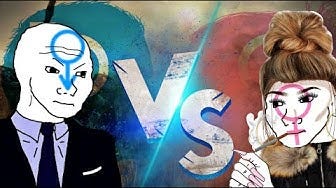

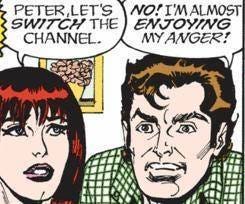
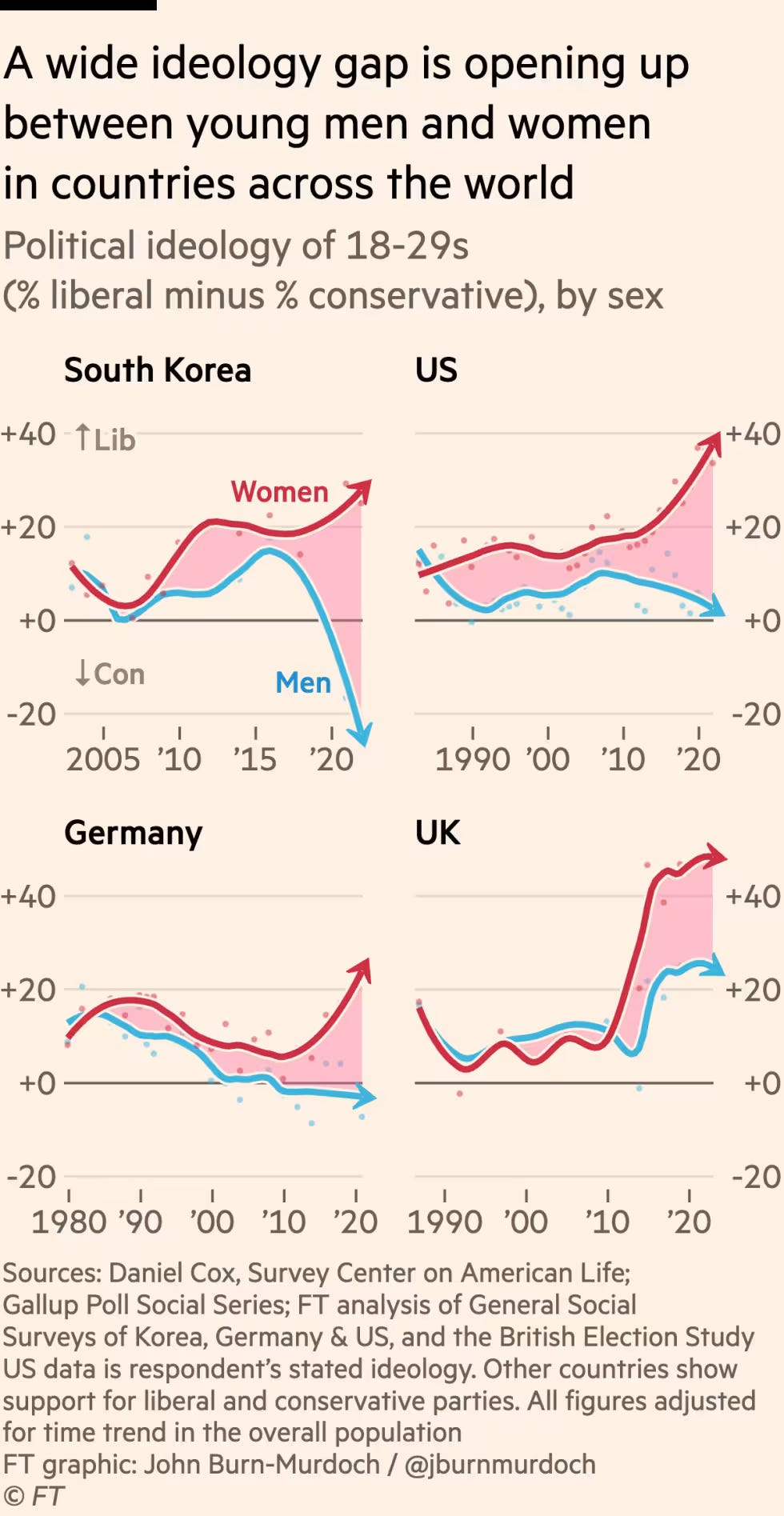

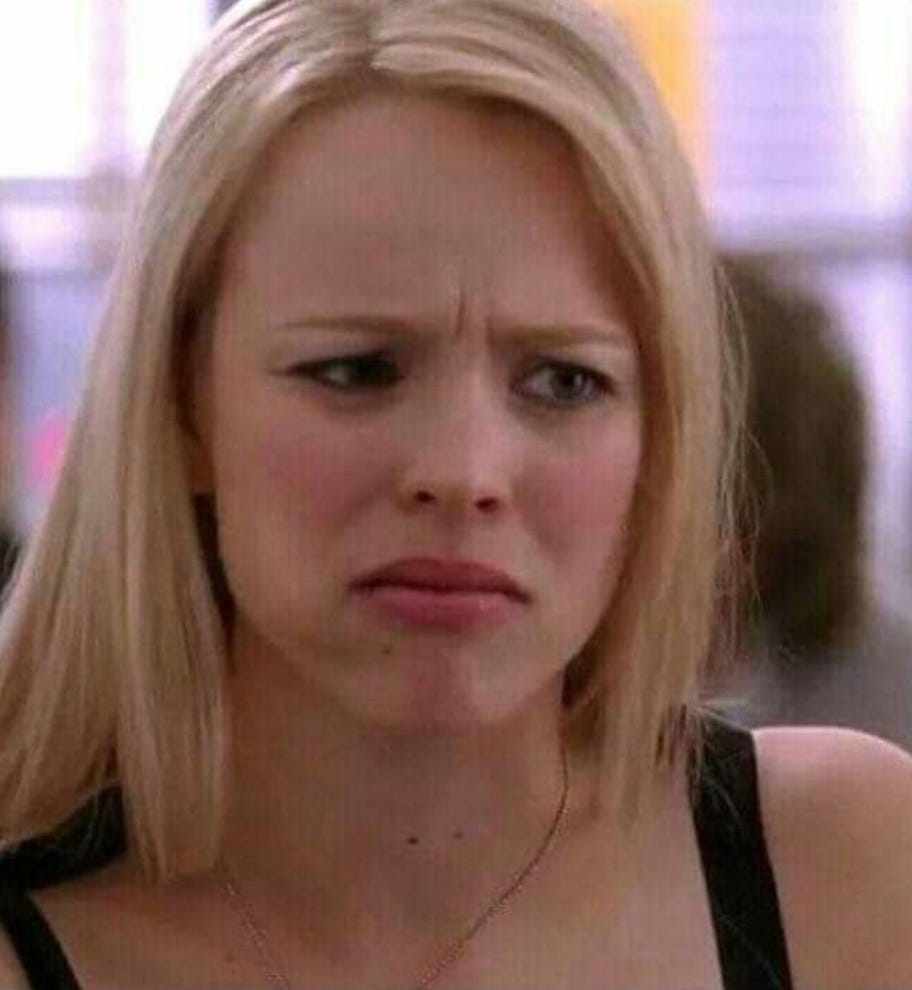

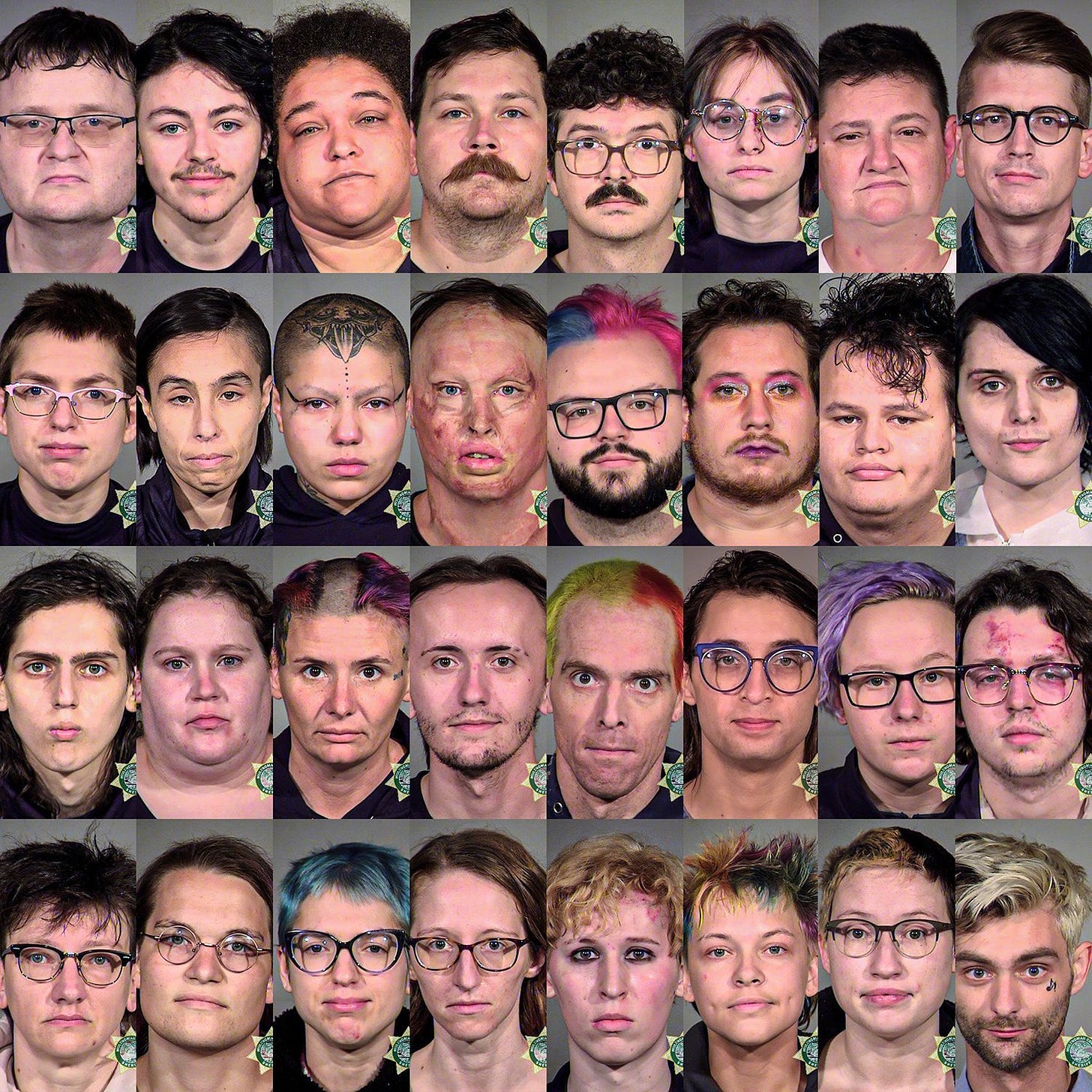
Kleinfeld's bias is immediately exposed with the line, "...and vastly out-competing them in college."
She pretends as if the system is fair, impartial, and gender neutral. The education system is none of these things. Having sons who attend this indoctrination through therapy institution, I see it on a daily basis.
History has seen these kinds of trends before. It seldom ends well for the presiding regime. Turns out that enforcing conditions under which fighting-age men feel alienated, demonized, and - most crucially - like they have nothing to lose, is a risky policy.